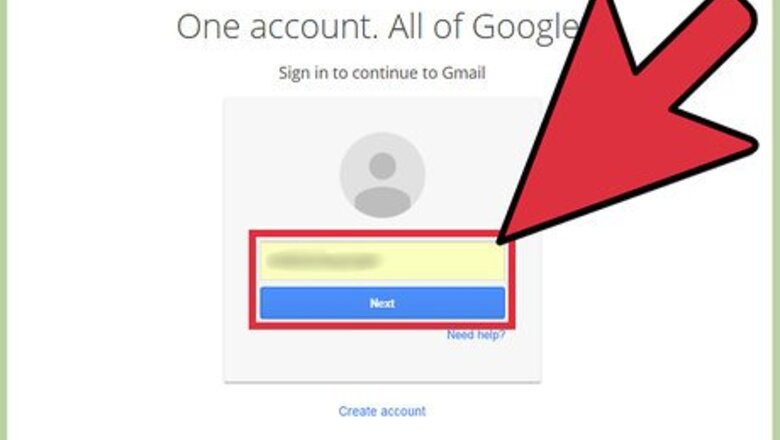
views
Note: Due to the wide variety of email types, this article will explain the process using a Gmail account, the most common email server. However, the steps are identical for any type of email.
- Log into your email account on your web browser. Find the "Forwarding" option in your settings. Enable "IMAP Access".
- Open Outlook and go to "Tools" > "Accounts" > "Add". Log into your email address and set up the incoming and outgoing servers to be identical.
- Check the "Use SSL to connect" if it is not already checked. Then, Click "More Options". Make sure "Authentication is set to "Use incoming server info".
Setting up Your Email Account
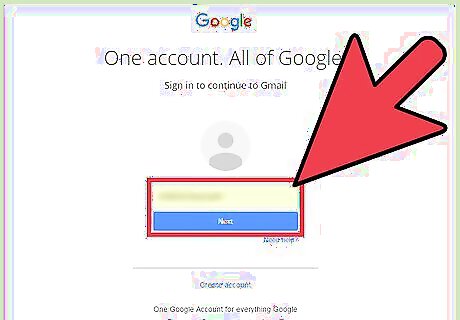
Open your current email account on the internet. Head to your email website, such as Gmail, and log in.
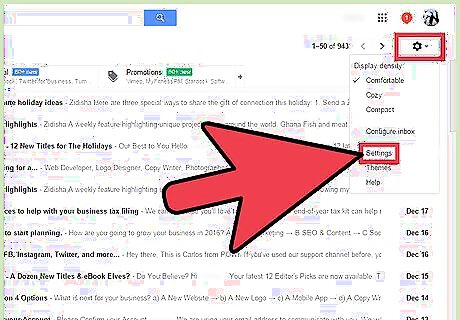
Click on "Settings" or "Preferences." In Gmail, this is found in a little gear symbol in the top right corner. Many other clients simply have the word "Preference" or "Settings."
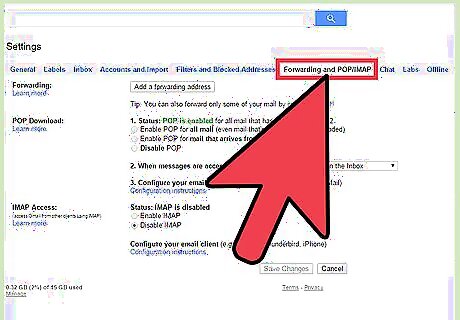
Navigate to "Forwarding" in the preferences. This could have many names, but all of them should have something similar to "Forwarding." Other phrases to look out for include: "Forwarding and POP/IMAP" "IMAP Settings" "Mail Forwarding." "POP/IMAP"
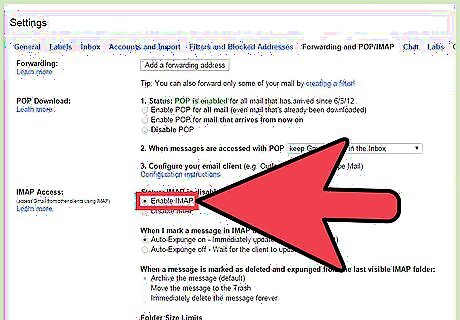
Enable "IMAP Access" for your account. This tells your email that it is okay to send a copy of the mail to Outlook. Once you've done this, you're good to set up Outlook. If you cannot find IMAP Access on your unique email client, try looking it up. Simply search online for "(Your email client) + Enable IMAP."
Setting up Outlook
Open your Outlook program and then click "Tools" from the menu bar. If this is the first time you've used Outlook, it will likely ask you to "Add an account." Click on this to add your email account.
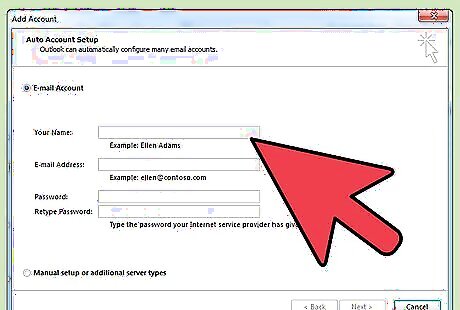
Select "Accounts" towards the bottom of the Tools drop-down menu. This allows you to log in to your email account, setting it up for Outlook. Troubleshooting: For Windows 8 or higher: If you are not getting this option, then get the “Charms bar” by pressing combined “Window + C” with the keyboard. At the Charms bar, click over “Settings,” then “Accounts,” and then “Add an account”.2328930 6b1.jpg
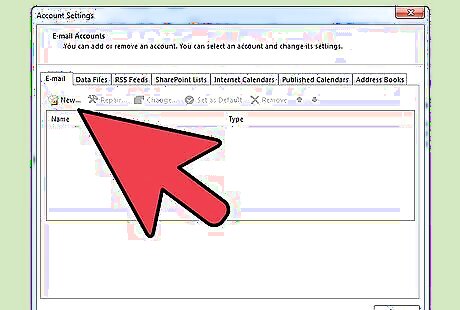
Click the "Add" button to add a new email address. There is a little "+" near the corner on some Macs. Troubleshooting: You may also need to click the padlock icon in the bottom to unlock your settings. This will require your administrative password, the one you used to log into the computer.
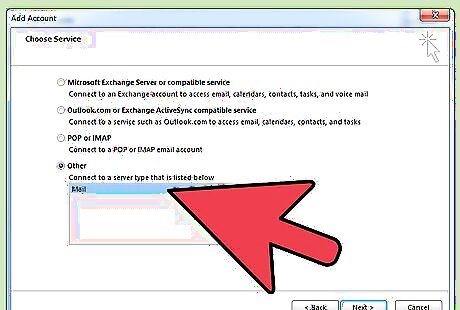
Select "Mail" from the drop-down menu that appears. If asked what kind of account (Gmail, Yahoo Mail, etc.) make sure you select the correct one.
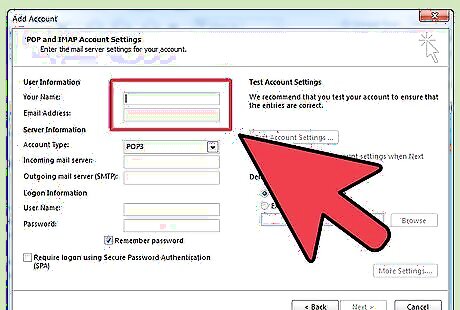
Type in your email address and password. It may take some time to access your email, but usually no more than a few minutes.
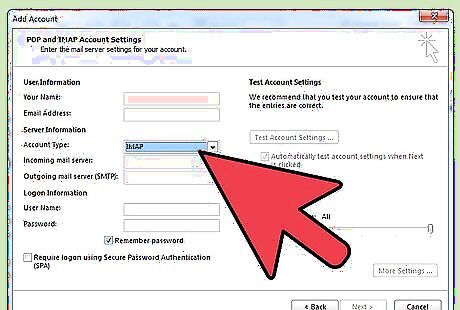
Select IMAP from the "type" box. This is by far the most common way to work things. Troubleshooting: If this fails, try POP.2328930 10b1.jpg
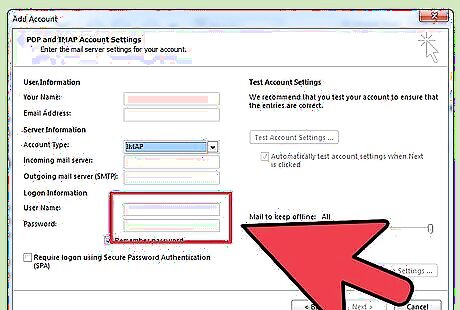
Provide your username, which is usually your email. This is what you used to log on.
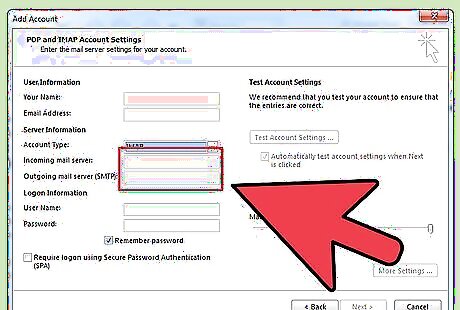
Set up the incoming and outgoing server identically. This looks complicated, but it is not. Simply write in mail, a period, then the end of your email handle. For example, if your email is [email protected], your servers would both be mail.gmail.com. Make sure "Use SSL to connect" is checked.
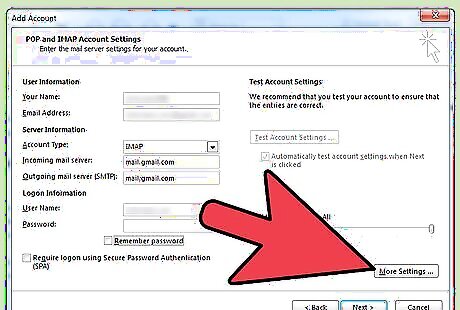
Click on "More Options..." and select "Use incoming server info" for "Authentication. This helps keep Outlook running smoothly, and is not strictly necessary. It will, however, help avoid some common issues.




















Comments
0 comment